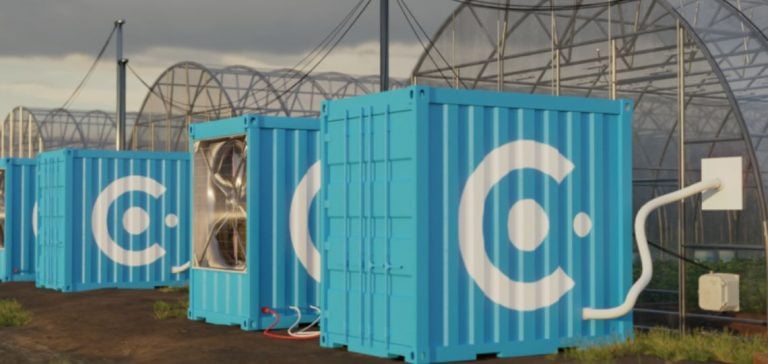Ukraine, in the midst of war, continues to play an active role in the fight against greenhouse gas emissions.
The Climate Innovation Vouchers program, set up by the European Bank for Reconstruction and Development (EBRD) with the support of the European Union (EU), finances Ukrainian companies developing innovative industrial technologies.
These initiatives focus on optimizing industrial processes while contributing to decarbonization.
Two companies, Pipes.one and Carbominer, are benefiting from this support to develop concrete solutions for the construction and agricultural sectors.
The Ukrainian industrial sector is thus positioning itself for resilience in times of crisis, while strengthening its ability to reduce production costs and improve energy efficiency.
Pipes.one: Pipe production optimization
In the construction sector, Pipes.one offers a solution for the mobile production of polymer pipes directly on site.
This process reduces logistics costs while minimizing the carbon footprint associated with transporting materials.
By eliminating the need to transport finished products over long distances, the company optimizes the entire supply chain.
This model is based on a technological innovation that enables the length and diameter of pipes to be adjusted on site, while using recycled raw materials.
This approach reduces the use of resources and transport-related emissions, in line with the decarbonization objectives of Ukrainian companies.
The flexibility of this production model has enabled Pipes.one to maintain its business despite the disruption caused by the conflict in Ukraine.
Carbominer: Capturing CO2 for agriculture
Carbominer, meanwhile, is focusing on an innovative approach to atmospheric CO2 capture for agricultural greenhouses.
The company has developed a system that injects captured CO2 directly into greenhouses to optimize crop growth.
This alternative to compressed CO2 cylinders reduces costs for farmers while offering a more stable supply solution.
The technology developed by Carbominer is based on a device that captures CO2 directly from the surrounding air and reinjects it into the controlled greenhouse environment.
This process offers a local and sustainable solution, while at the same time contributing to global efforts to decarbonize agriculture.
Despite the conflict, Carbominer continues to expand, now operating in both Ukraine and Poland.
Industrial and agricultural prospects for decarbonation
These initiatives illustrate the ability of Ukrainian companies to innovate under extremely difficult conditions.
Pipes.one, with its mobile production model, and Carbominer, with its approach to CO2 capture, show that Ukraine continues to make progress in reducing greenhouse gas emissions, while optimizing industrial performance.
These solutions bring immediate benefits in terms of reduced production costs, energy efficiency and autonomy of agricultural systems.
Decarbonization is thus becoming a central issue for Ukraine’s industrial and agricultural sectors.
The support provided by EBRD and the EU through the Climate Innovation Vouchers program facilitates the development of competitive technologies on the European market, with concrete impacts on the construction and agricultural value chains.
Despite the context of war, Ukrainian companies have shown considerable resilience and dynamism, enabling them to remain at the forefront of industrial innovation.
These projects, although still in the deployment phase, show that investment in green technology can be an effective lever for rebuilding and strengthening the Ukrainian economy.






















